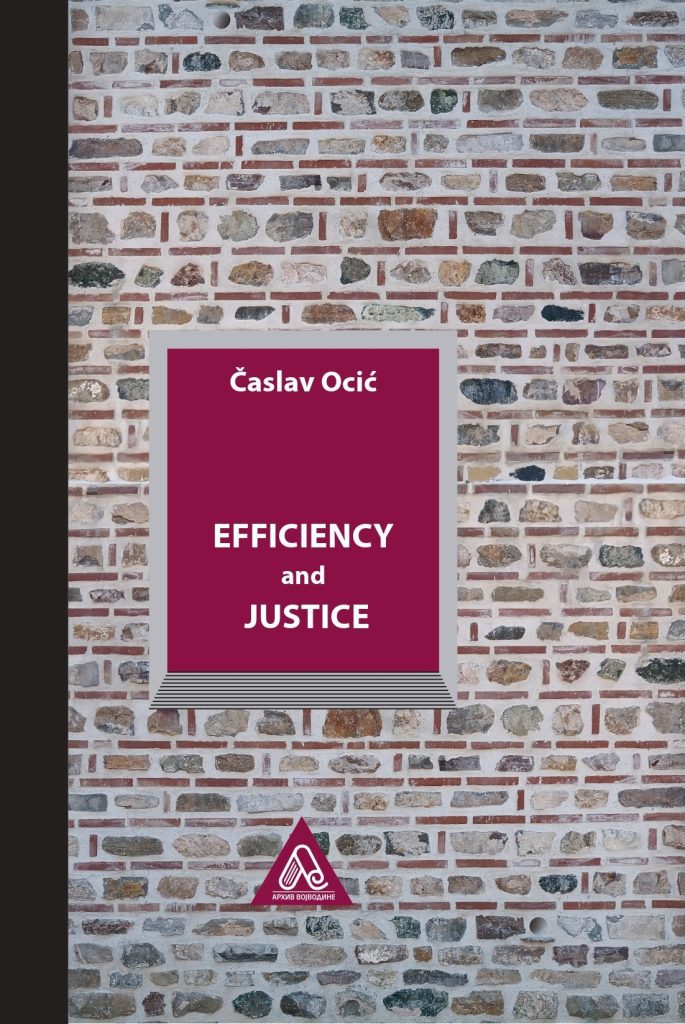
Časlav Ocić
EFFICIENCY AND JUSTICE: STUDIES IN POLITICAL ECONOMICS OF YUGOSLAVIA
Publisher
Archives of Vojvodina
For the Publisher
Nebojša Kuzmanović PhD, director
Editor
Ivana Gačić
Prepress
Ljubica Tanasković
Cover
Gradimir Knežević
ČO Monogram Design
Rastko Ćirić
Print
Sajnos, Novi Sad
Circulation
300
The Balkans are known as conflicted, unstable and relatively technologically and economically backward – and above all – as the region burdened by stereotypes. How could nowadays be defined the economic, or more exactly general developmental basis of long-term peace and stability in the Balkans? Are they included in the phrase ‘de-Balkanization of the Balkans’ in terms of Europeanization (or re-Europeanization if the Balkans were ‘the first Europe’)? The asymmetrical development of the Balkans manifested itself in the consumption dependence, and then in various attempts at industrialization as a technological, import, financial or total development dependence. That dependence (among other factors) has resulted in a constant relative backwardness of the Balkan countries: they lagged behind even when they recorded progress. Even the high growth rates of the Balkan economies could not compensate for that lagging, that is, they were not sufficient to enable the achievement of the developed countries. The Balkans was not able to compensate for it under the aegis of capitalism or even under various forms of Balkan communism. Will the Balkans be able to do so in the 21st century, using the comparative advantages of the new model of capitalism based on the information?


